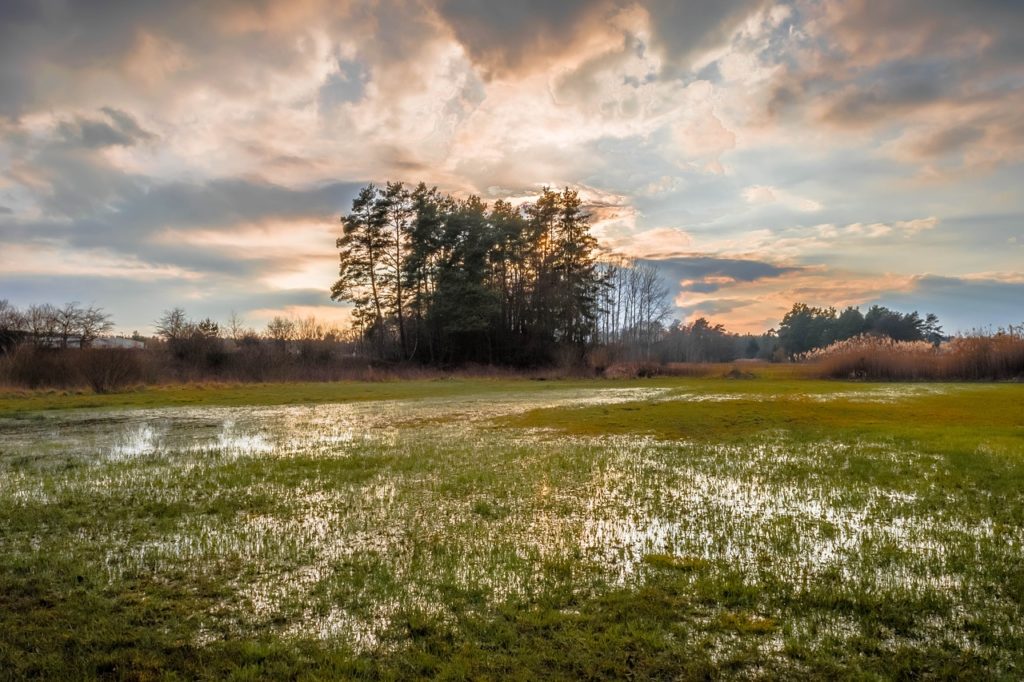
By Lindsay Street, Statehouse correspondent | Republican policy leaders, a farm lobbyist group and environmentalists say S.C. farmers need help weathering storm after storm.
“We have just had a really unfortunate series of weather events that have been right at the peak of harvest. They absolutely could not come at worst times for farmers,” S.C. Farm Bureau’s Stephanie Sox said. “How much more are they going to be able to take?”
The United Nations released an alarming report this week that says the world’s climate is rapidly changing due to human activities and, without changes to how humans currently live, there will be consequences on nature and food productions as early as 2030. Super-charged storms like hurricanes Florence and Michael, could become the norm, the report says.
The chairmen of the S.C. House and S.C. Senate’s agriculture committees told Statehouse Report that they have not read the report.
“I don’t spend a lot of time reading about climate change,” said S.C. Rep. David Hiott, R-PIckens.
His colleague from the upper chamber, Sen. Paul Campbell, R-Charleston,called reports of climate change “overplayed.”
“I have not seen enough data to convince me,” he said. But Campbell also said he understands farmers are getting “hammered.” He pledged that “the Senate committee is going to investigate the plight of the farmers and see what we can come up with because it continues to recur.”
Most farming advocates in the state are focused on recovery efforts and making sure aid, whether donated or tax dollars, gets to farmers in need. But environmental advocates like S.C. Coastal Conservation League, which has established a farmer distribution network, said the state needs to invest now to be proactive instead of reactive to storms.
“We need to take it seriously. We need to take it like we’re recruiting a big industry,” CCL Chief Conservation Officer Lisa Jones Turansky said. “(We need to) talk about those things in nonpolitical context and in a survival context.”
“Too much water:” The storms and recovery

S.C. Commissioner of Agriculture Hugh Weathers on Thursday did what thousands of farmers across the state were doing: assessing potential damage from yet another tropical system that spun into South Carolina.
Weathers said farming is a partnership with nature, but added he cannot speak to climate change and the science behind it. A former dairyman, Weathers has thousands of acres of corn, soybeans and peanuts on his Bowman farm.
Aside from some down tree limbs, he told Statehouse Report his farm faired well in Tropical Storm Michael.
Other farmers may not be as lucky. The state has about 25,000 farms on 4.9 million acres, and they produce $3 billion annually, between crops and livestock, according to the S.C. Department of Agriculture. Those in the Pee Dee still haven’t recovered from Hurricane Florence’s flooding, which like the 2015 flood and 2016’s Hurricane Matthew, came during the peak harvest time.
The estimated agricultural damage from Florence is $82.5 million. In cotton alone, the state saw a loss of $56 million, according to numbers from Weathers’ agency. The number is greater than what farmers experienced in 2016 with Matthew ($50 million in losses), but eclipsed by the 2015 flood ($330 million in losses).
“Our farmers are resilient. They’ve had to be,” Weathers said. “I’ve been on the same farms in the Pee Dee counties for three of the past three years, for the same reasons: too much water.”
Weathers praised Gov. Henry McMaster in requesting federal aid for farmers in the state, but he said he feared the “bureaucratic and cumbersome” process of working with the federal government would delay getting money to farmers in need.
Weathers said he will appeal on behalf of farmers to lawmakers for a piece of the state’s surplus.
“It is time for the American consumer, by way of their tax dollars, to help right the ship so that food production in this country does not become volatile like other things in our economy,” he said.
Meanwhile, the Farm Bureau is working to establish an agricultural aid foundation, Sox said. This would directly benefit farmers affected by Hurricane Florence and could help farmers recover from future storms.
“We envision this fund as being something that is ongoing as we deal with more of these natural disasters,” she said.
Building resiliency
But recovery isn’t enough to help protect the state’s food producers, according to Turansky.
“It doesn’t make sense to me that a farmer doesn’t need help until their in crisis. Everybody can benefit from addressing a problem before it happens,” she said.
Turansky said voters should make food production and climate change central to their Nov. 6 and future elections decisions.
“We need to demand that our policy makers are helping to establish us as a resilient state,” she said. “We really need to see a dramatic shift in all levels of government if we want to make a difference.”
Turansky said helping to curb greenhouse gas emissions and making farmers more resilient in a changing climate go hand-in-glove by growing and eating locally wherever possible. This allows farmers to grow more varied crops. For example, instead of only growing corn, they would grow the staple crop, market produce and have fruit or nut trees. IN turn, that would provide greater stability. If one crop fails, there are others to fall back on.
Five years ago, the state commissioned a study to look into growing the farming economy and aiding the local food effort. Turansky said with better infrastructure, South Carolinians in the Lowcountry can buy apples from the Upstate and those in the Upstate can buy oysters from the Lowcountry. This would reduce the need for an apple to travel thousands of miles from Washington state — thereby cutting greenhouse gas emissions — and help those farmers diversify their income streams, making them more resilient, she said.
Turansky said initial investments would start at around $1 million to “kickstart those recommendations.” Since 2011, CCL has a program called GrowFood Carolina, which helps mid-sized farms with connecting their produce to customers.
Boosting sustainability
Weathers’ agency has worked on promoting South Carolina-grown food and focusing on more sustainable solutions in recent years.
“If (farmers) can diversify their crop mix, it helps with their ability to withstand,” Weathers said.
Sox said S.C. farmers have also been investing in biodiesel, which should help with further reducing greenhouse gas emissions.
However, Sox said, the state should be wary of any more government restrictions on farmers. She praised recent Environmental Protection Agency rollbacks as the federal government relaxes on pollution runoff and chemical use as being good for farmers in the state.
“Farms are a business. Each farmer decides which business model is the best model for them,” she said.
- Have a comment? Send to: feedback@statehousereport.com
















 We Can Do Better, South Carolina!
We Can Do Better, South Carolina!
Sounds like what Sox wants is for us to bail out farmers but please no regulations that protect our health.